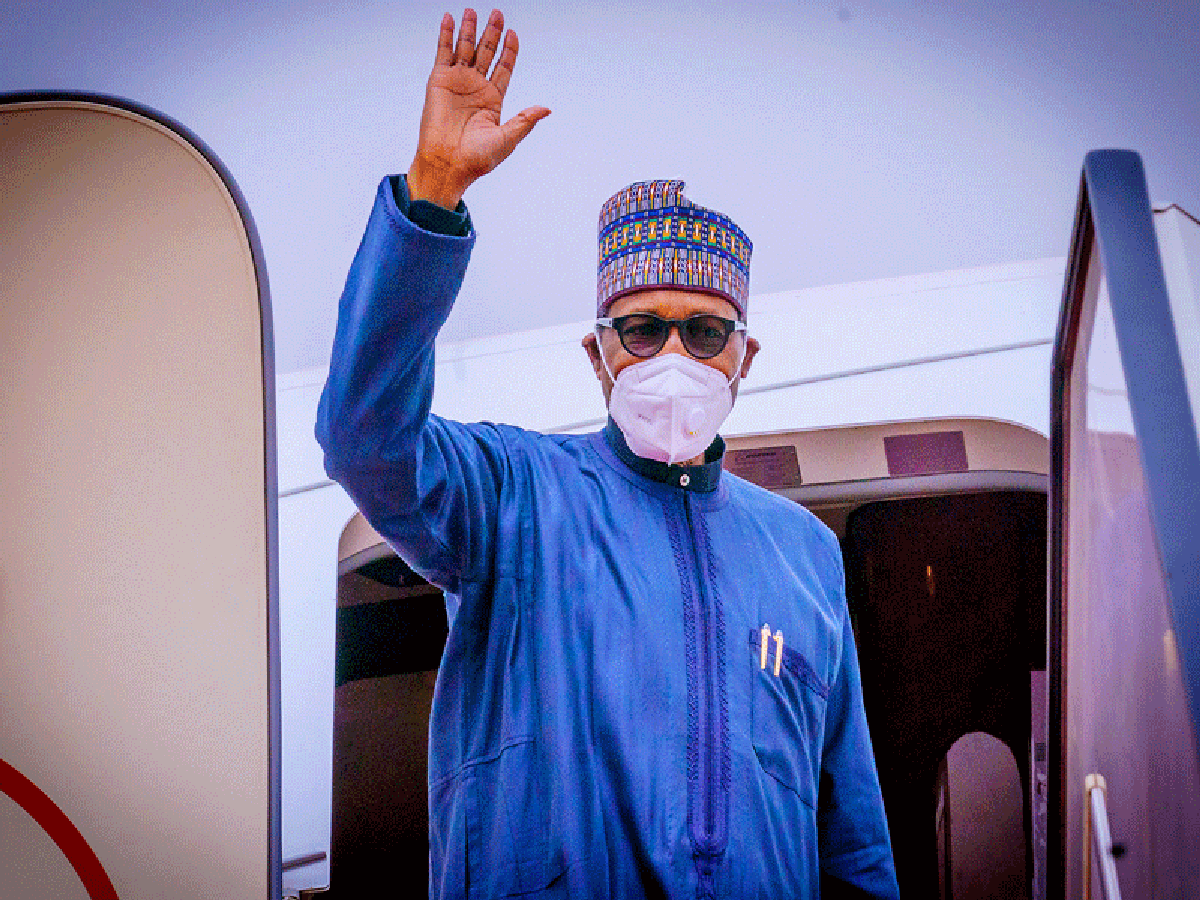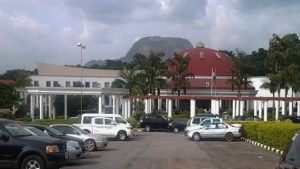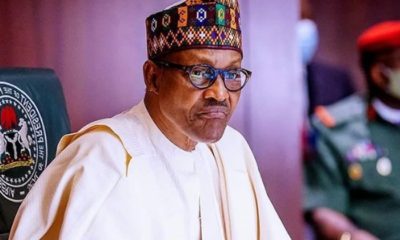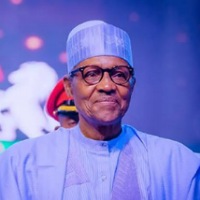NEWS
Despite N2.3tn health budgets, Buhari spends 201 days on foreign medical trips

• Aso Villa clinic gulps N6.2bn in six years, doctors knock FG
Six years and two months since his regime began on May 29, 2015, the President, Major General Muhammadu Buhari (retd), has spent a total of 201 days on medical leave as of Sunday, based on information made public by the Presidency.
Despite Buhari’s preference for foreign medical care, the Federal Ministry of Health has consumed a total of N2.3tn from 2016 to date, while the State House Medical Centre has received N6.2bn, according to the respective appropriation acts available on the website of the Budget Office of the Federation.
The presidential clinic caters for the President, Vice President, their families and members of staff of the Presidential Villa, Abuja.
In 2016, the Ministry of Health received N250bn, while the State House Medical Centre got N2.8bn In 2017, N304.1bn was allocated to the Ministry of Health and N331.7m to the State House Medical Centre.
The 2018 budget indicated that the ministry had N356.4bn, while the presidential clinic received N1bn. In 2019, N372.7bn went to the ministry and the Villa medical centre got N798.8m.
In 2020, N414.4bn was budgeted for health as against N598.6m for the State House Medical Centre. The 2021 budget allocated N549.8bn to the Ministry of Health and N641.1m for the presidential clinic.
Additionally, the recently signed 2021 Supplementary Appropriation Act allocated to the ministry N83.5bn for National Primary Healthcare Development Agency, as well as N1.68bn for National Agency for the Control of AIDS.
Buhari left for the UK on June 6, 2016, for his first medical vacation, following reports that he had an ear infection. He returned on June 19, 2016.
On January 19, 2017, the President again travelled to the UK on medical leave and returned on March 10, 2017, after spending 51 days.
Barely 40 days after, Buhari travelled again to the UK for medical attention on May 8, 2017 and remained there till August 19, 2017, spending 104 consecutive days, a record which surpassed that of the late President Umaru Yar’Adua.
After attending the 72nd UN General Assembly, on September 21, 2017, he travelled from the US to the UK for medical purposes and returned to Abuja on September 25, 2017.
On May 8, 2018, four days after arriving in Nigeria, Buhari returned to the UK for medical reasons and he returned on May 11.
The President again travelled to London on a working leave on August 3, 2018 and returned on the 18th, spending a total of 16 days. His handlers said during interviews that “he may just see his doctors briefly during the visit.”
On April 25, 2019, Buhari arrived in the UK for a 10-day “private visit,” returning on May 5, 2018, though information was not given on the purpose of the trip.
Again, on November 2, 2019, he proceeded on a 15-day “private visit” to London, following bilateral talks in Saudi Arabia. He returned to the country on November 17.
In 2020, the President did not leave the country for a single medical trip, presumably due to travel restrictions resulting from the COVID-19 pandemic.
But on March 30, 2021, he resumed his medical visits with two-week trip to London.
On June 24, the President postponed another planned medical trip to the UK. He, however, departed the country for London on Monday to attend an education summit and have a check-up. He is expected to return in the second week of August.
The Special Adviser to the President on Media and Publicity, Femi Adesina, in an appearance on Channels Television last Monday, stated that his boss preferred to have his check-up in the United Kingdom as Nigerian doctors did not have his medical profile.
He said, “President Buhari has been with the same doctors and medical team for upward of 40 years,” he said when asked why the President couldn’t have been treated in Nigeria.
“It is advisable that he continues with that who knows his medical history and that is why he comes to London to see them. He has used the same medical team for over 40 years. Once you can afford it, then stay with the team that has your history.”
NMA, NARD react
The Nigerian Medical Association and the National Association of Resident Doctors, in separate interviews with Sunday PUNCH, expressed displeasure at the neglect suffered by the health sector amid the President’s frequent medical trips.
The General Secretary of the NMA, Dr Philip Eke, credited the private sector for a majority of the development recorded in the health sector.
He said, “We could have committed more funds to make the health sector better. But unfortunately, it is even the private sector that is improving the health sector, not the public sector, because the government is not even buying equipment.
“It may seem as if the workers are paid relatively higher, but that money is nothing when the cost of food is very high. By and large, I don’t think there is much improvement in the health indices in the country as expected. The private sector has done a whole lot trying to improve the health sector.
“But one thing again is that the behaviour of the public office holders tells you that there has not been any improvement in the health sector because if they had improved the health sector, they would have the confidence to stay and get treated.”
Noting that there was not outright immorality in seeking medical care abroad, Eke argued that there were available professionals in the country. According to him, the neglect in the health sector had led to brain drain to Canada, UK and other developed countries.
The NMA general secretary said, “What is the illness that the President has that we don’t have the personnel or manpower in Nigeria to treat such that he has to travel out of the country? “That tells you that even if he does not trust the system and if the President does not trust the system, it means he is not leading by example and means other public office holders will also leave.
“I am not saying we should not seek health care outside the country, especially if it is something that is beyond our capacity. But even basic primary health care is not really working. Despite the fact that the basic health care provision fund was released — kudos to the government for that — we have not seen the effect in making sure that the states improve on health insurance.
“They only did that because they wanted to collect some of that money. It’s not functional, it’s just structural. We are still waiting as the Speaker of the House of Representatives is still pushing so that the President can give assent to the bill that will make national health insurance mandatory. Once that happens, there will be a lot of money in the health sector.”
The NARD President, Dr Uyilawa Okhuaihesuyi, also decried the lack of standard health infrastructure in the country, saying the blame should be laid at the feet of not only the President, but all elected officials.
According to him, the primary, secondary and tertiary levels of the health sector are plagued by poor planning on the part of researchers, members of the state houses of assembly, the House of Representatives, governors and commissioners, among others.
Okhuaihesuyi said, “We gave an ultimatum in May concerning our strike notice. We are currently in Umuahia (Abia State) to reappraise and reassess the MoU signed with the government. As it stands, I hope it’s not going to be a coincidence if NARD will be on strike.
“On infrastructure, you and I know that global best practices dictate that our healthcare systems must have a better budget. We should have (at least) a standard hospital in all the six (geopolitical) zones in the country. We should have the basic things that a hospital needs to function properly.
“But there is no hospital in Nigeria presently that I can say adopts global best practices. The ones that are close to adopting best practices are those owned by private individuals, not the government. If the government pays more attention to the health system in Nigeria, it would go a long way in ensuring that one can stay in one’s country and get the best health care any person deserves as a human being.”
President’s medical trips wasteful, says Okei-Odumakin
In the same vein, the President of Campaign for Democracy, Dr Joe Okei-Odumakin, in a text message, stated that the attraction to foreign health care demonstrated the failure of leadership.
She said, “There has been no improvement whatsoever in the health sector, based on a lack of commitment by successive administrations in the country.
“Sadly, the continued patronage of foreign hospitals by privileged Nigerians, including the President and his immediate family, has increased the lack of confidence in the sector, thereby increasing medical tourism and wastage of public funds on such adventures.”
-PUNCH
NEWS
Data Protection Act Amendments: SERAP Threatens Legal Action Against National Assembly Leadership
The Socio-Economic Rights and Accountability Project (SERAP) has urged the Senate President, Godswill Akpabio and the Speaker of the House of Representatives, Tajudeen Abbas “to immediately withdraw the repressive bill for an act to amend the Nigeria Data Protection Act 2023, which seeks to regulate the activities of bloggers operating within the ‘territorial boundaries of Nigeria.’”
Details of SERAP’s position was contained in a statement on Sunday night in Abuja by its Deputy Director, Kolawole Oluwadare.
Olwadare posited that the SERAP urged Akpabio and Abbas “to ensure that any amendment to the Nigeria Data Protection Act promotes and protects the rights of bloggers and other journalists and does not undermine the fundamental human rights of Nigerians.”
The SERAP also urged Akpabio and Abbas “to end the imposition of unnecessary restrictions on the rights of Nigerians online and Internet-based content.”
ALSO READ: 2027: Okpebholo Banks On Edo, Delta States To Swing Tinubu’s Reelection
There is currently a bill titled “A Bill for an Act to Amend the Nigeria Data Protection Act, 2023, to Mandate the Establishment of Physical Offices within the Territorial Boundaries of the Federal Republic of Nigeria by Social Media Platforms and for Related Matters” (the “bill”).
The bill among others seeks to regulate bloggers including by requiring all bloggers to register local offices and join recognised national association for bloggers. The bill has passed its first and second reading in the Senate.
In the letter dated 12 April 2025 and signed by Oluwadare, the organisation stated thus, “This bill is a blatant attempt to bring back and fast-track the obnoxious and widely rejected social media bill by the back-door.”
The SERAP said, “If passed, the bill would also be used to ban major social media platforms—including Facebook, X (formerly Twitter), Instagram, WhatsApp, YouTube, TikTok, and independent bloggers if they ‘continuously fail to establish/register and maintain physical offices in Nigeria for a period of 30 days.’”
The letter, read in part: “Lawmakers should not become arbiters of truth in the public and political domain. Regulating the activities of bloggers and forcing them to associate would have a significant chilling effect on freedom of expression and lead to censorship or restraint.”
“The bill may also be used to block access of Nigerians to social media platforms. Blocking access to social media platforms is a flagrant violation of fundamental rights.”
“In addition to infringing on Nigerians’ right to access to information and digital technology, the proposed bill would also severely hamper business operations in the country, as many are reliant on foreign tools, services and technologies for their operations, as well as other sectors that rely on online information.”
“The bill would force international tech companies out of the Nigerian information landscape by requiring them to establish/register and maintain physical offices in the country. It would violate the requirement that the right to freedom of expression applies ‘regardless of frontiers.’”
“Should the National Assembly and its leadership fail to withdraw the bill to regulate the activities of bloggers, and should any such bill be assented to by President Bola Tinubu, SERAP would consider appropriate legal action to challenge the legality of any such law and ensure it is never implemented in the public interest.”
“The regulation of bloggers may be used to muzzle any dissenting voice and to silence any form of criticism or negative opinion on the policies and practices of the ruling party or the Government.”
“Authorities may also use the proposed regulation as a pretext to punish bloggers solely for the peaceful exercise of their human rights.”
“The bill seems to be directed at bloggers living in Nigeria and elsewhere, with severe adverse effects on the freedom of expression of a very wide range of individuals.”
“The proposed amendment to the Nigeria Data Protection Act, 2023 fails to meet the requirements of the Nigerian Constitution 1999 [as amended] and international human rights treaties to which the country is a state party.”
“The amendment, if passed would adversely affect unregistered bloggers operating ‘within the territorial boundaries of Nigeria.’”
“The proposed amendment may also be used to violate the rights to privacy, freedom of peaceful assembly and of association as protected by the Nigerian Constitution 1999 [as amended] and international human rights standards.”
“The proposed amendment is entirely inconsistent and incompatible with Nigeria’s obligations to respect and ensure the effective realisation of the right to freedom of opinion and expression. The amendment would disproportionality suppress a wide range of expressive conduct essential to a democratic society.”
“The bill would pose major barriers and threats to any individuals, especially journalists, human rights defenders and civil society organisations who may be critical of the government, as well as stifle democracy and media freedom.”
“Mandatory regulation of journalism is incompatible with the right to freedom of expression. There is no legitimate reason why bloggers – or in fact members of the general public – should be subject to mandatory regulation or licensing to express themselves.”
“Blogging plays an invaluable role in the free flow of information. Bloggers should never be required to register with the government or other official agencies to blog.”
“The bill may also be used as a pretext to force bloggers to disclose their sources. The right to protect sources is a cornerstone of freedom of the press, without which sources may be deterred from assisting the press in informing the public on matters of public interest.”
“The Nigerian Constitution and human rights treaties which the country has ratified protect everyone’s right [including bloggers] to maintain an opinion without interference and to seek, receive and impart information and ideas of all kinds, regardless of frontiers and through any media.”
“Nigerian authorities including the National Assembly have legal obligations to ensure an environment in which a diverse range of opinions and ideas can be freely and openly expressed and debated.”
“The requirement of necessity implies an assessment of the proportionality of restrictions, with the aim of ensuring that restrictions target a specific objective and do not unduly intrude upon the rights of targeted persons.”
“As noted in the 2005 Joint Declaration of the special rapporteurs on freedom of expression, ‘[n]o one should be required to register with or obtain permission from any public body to operate an Internet service provider, website, blog or other online information dissemination system, including Internet broadcasting.’”
“In their 2011 Joint Declaration on Freedom of Expression and the Internet, the four special mandates for the protection of freedom of expression highlighted that regulatory approaches in the telecommunications and broadcasting sectors cannot simply be transferred to the Internet.”
International News
Gabonese Voters Head To Polls In First Presidential Election Since 2023 Coup
Gabonese citizens lined up at polling stations on Saturday to cast their votes in a landmark presidential election, the first since the military ousted the Bongo dynasty in a coup last August.
Eight candidates are vying for the top job, but all signs point to junta leader General Brice Oligui Nguema — the man behind the August 30, 2023, coup — emerging as the frontrunner.
Oligui, who toppled Ali Bongo and ended 55 years of family rule widely criticized for corruption and economic mismanagement, has dominated opinion polls in the run-up to the vote.
In the capital, Libreville, snaking queues formed outside polling stations as voters turned out early.
READ MORE: Gabon Extends Investment Offer To Dangote Amid Nigerian Attacks
Among them was 30-year-old Aurele Ossantanga Mouila, who cast his ballot for the first time after finishing a night shift at a casino.
“I did not have confidence in the earlier regime,” Mouila told reporters, echoing the sentiments of many young voters hoping for change in the oil-rich central African nation.
Oligui, who served as transitional president while civilians drafted a new constitution, swapped his military uniform for campaign attire as he seeks a seven-year mandate.
He faces seven challengers, including his main rival, former Prime Minister Alain-Claude Bilie By Nze, a longtime insider under Ali Bongo who now brands himself as the face of a “complete rupture” from the past.
Despite Oligui’s promises of reform, critics question his commitment to breaking with the old system, noting his deep ties to the Bongo era.
His campaign slogan, “C’BON” — a clever wordplay blending his initials with the French phrase for “It’s good” — has been plastered across Libreville, while rival candidates struggle for visibility.
As roughly 920,000 registered voters cast their ballots, the election is taking place against a backdrop of pressing national issues.
High unemployment, failing infrastructure, regular power outages, and soaring government debt — projected to reach 80 percent of GDP this year — have fueled public frustration.
Analysts, like political observer Neyer Kenga, say the vote represents a critical test for Gabon’s return to civilian rule and constitutional order.
“Today all Gabonese are firmly in favour of a democratic game that is played within the rules,” Kenga noted, adding that the outcome remains uncertain in a nation scarred by post-election violence in 2009 and 2016, as well as last year’s coup.
The interior ministry has pledged a “transparent ballot” and results are expected by Monday. Meanwhile, Oligui remains confident of victory.
“The builder is here, the special candidate, the one you called,” he declared at his final rally, as music and dancing filled the streets of Libreville.
NEWS
‘Hands Off Our Campus!’ — NANS Warns SSANU Over Protest Threats At FUOYE
The National Association of Nigerian Students (NANS), Southwest Zone D, has cautioned the Senior Staff Association of Nigerian Universities (SSANU) against actions capable of disrupting academic activities at the Federal University Oye Ekiti (FUOYE).
In a statement released on Saturday in Ado Ekiti, the student body condemned what it described as “veiled threats” by SSANU Western Zone to mobilize its members for industrial action or protest at FUOYE, following the university’s handling of a sexual harassment allegation against the institution’s Vice Chancellor, Prof. Abayomi Fasina.
The controversy stems from an extraordinary meeting of FUOYE’s Governing Council, which exonerated Prof. Fasina of the sexual misconduct allegation, while two local SSANU leaders were found guilty of misconduct.
READ MORE: NANS Demands Probe Into NYSC’s Non-Payment Of N77,000 Allowance
The council directed the implicated unionists to issue written apologies and undertakings to abide by university regulations within seven days, although their suspensions were lifted, with a forfeiture of half salaries for the period under review.
In reaction, SSANU’s National Vice President for the Western Zone, Abdussobur Salaam, rejected the council’s decision and announced plans to mobilize union members across 26 universities for a possible industrial action until their demands were addressed.
Responding, NANS leaders Taiwo Owolewa (Coordinator), Olutunde Oluwole (General Secretary), and Eromidayo Kuku (Public Relations Officer) warned that any attempt to destabilize the academic environment would be met with firm resistance from the student body.
“Nigerian students and the entire NANS structure in the South-West and beyond will resist such moves with even greater mobilization across our over 70 tertiary institutions comprising more than 300,000 students,” the statement read.
They emphasized that students would not stand idly by and allow any group or union to jeopardize the academic future of over 50,000 students at FUOYE.
“This is not a threat; this is a declaration of readiness to protect the academic future of Nigerian students. FUOYE or any of our institutions in Southwest is not a battleground for political vendettas or union showdowns,” the student leaders asserted.
While urging SSANU to seek lawful and peaceful avenues to resolve grievances, NANS also called on stakeholders to step in and prevent any action that could compromise the stability of the institution.
Additionally, the association aligned itself with the conclusions of the university panel that cleared the Vice Chancellor of wrongdoing, citing corroboration from both the Nigeria Police Force and the testimonies of the concerned parties.
“Our foremost concern remains the welfare of students,” NANS stated, endorsing the Governing Council’s plans to establish a Peace and Reconciliation Committee as well as onboarding and reorientation programmes aimed at fostering a positive institutional culture.

















